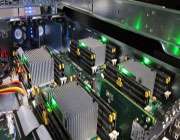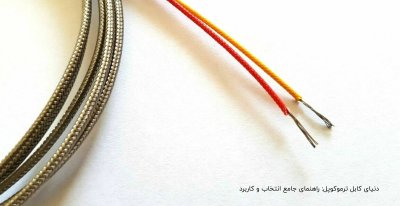V
Violet89
کاربر مهمان
دو عامل بسیار مهم در درایوهای ذخیره اطلاعات، میزان فضای ذخیره سازی و سرعت انتقال داده ها است. حالا به نظر می رسد که بعد از انقلاب درایوهای SSD در سرعت، بعد از عرضه درایو با حافظه تغییر فاز یا Phase-Change Memory شاهد جهش بزرگی در این زمینه خواهیم بود.

تیم دانشجویی مدرسه مهندسی جاکوبز دانشگاه کالیفرنیا اولین سری این درایو های SSD پر سرعت با نام Moneta را آماده نمایش کرده اند. البته مونتا تنها یک نوع جدید SSD نیست. بلکه این درایو یک PCM SSD یا اس اس دی با حافظه تغییر فاز است که اطلاعات را با استفاده از یک آلیاژ فلزی با نام chalcogenide ذخیره می کند. طبق گفته سازندگان، این کار باعث می شود که سرعت انتقال داده ها و ذخیره سازی اطلاعات، هفت برابر سریعتر از SSDهای موجود در بازار باشد.
PCM برای ذخیره اطلاعات از یک برنامه تولید گرما با جریان الکتریسیته استفاده می کند تا باعث تغییر آلیاژ مورد اشاره میان دو حالت کریستالی و بی شکل (غیر متبلور)شود. خواندن اطلاعات هم از طریق یک جریان ضعیف تر اما با همین مکانیسم صورت می گیرد، تا سیستم تشخیص دهد که آلیاژ در کدام یک از دو حالت بی شکل یا کریستالی قرار دارد.
این درایو اطلاعات را با سرعت تئوری 327 مگابایت بر ثانیه می خواند و ذخیره سازی و نوشتن اطلاعات هم با سرعت 91 مگابایت بر ثانیه انجام می گیرد. اما برای دیدن آزمایش های عملی و کاربردی آن باید تا کنفرانس DAC 2011 صبر کنیم. البته به گمانم هنوز زمان زیادی تا تجاری شدن این ابداع باقی مانده است.

تیم دانشجویی مدرسه مهندسی جاکوبز دانشگاه کالیفرنیا اولین سری این درایو های SSD پر سرعت با نام Moneta را آماده نمایش کرده اند. البته مونتا تنها یک نوع جدید SSD نیست. بلکه این درایو یک PCM SSD یا اس اس دی با حافظه تغییر فاز است که اطلاعات را با استفاده از یک آلیاژ فلزی با نام chalcogenide ذخیره می کند. طبق گفته سازندگان، این کار باعث می شود که سرعت انتقال داده ها و ذخیره سازی اطلاعات، هفت برابر سریعتر از SSDهای موجود در بازار باشد.
PCM برای ذخیره اطلاعات از یک برنامه تولید گرما با جریان الکتریسیته استفاده می کند تا باعث تغییر آلیاژ مورد اشاره میان دو حالت کریستالی و بی شکل (غیر متبلور)شود. خواندن اطلاعات هم از طریق یک جریان ضعیف تر اما با همین مکانیسم صورت می گیرد، تا سیستم تشخیص دهد که آلیاژ در کدام یک از دو حالت بی شکل یا کریستالی قرار دارد.
این درایو اطلاعات را با سرعت تئوری 327 مگابایت بر ثانیه می خواند و ذخیره سازی و نوشتن اطلاعات هم با سرعت 91 مگابایت بر ثانیه انجام می گیرد. اما برای دیدن آزمایش های عملی و کاربردی آن باید تا کنفرانس DAC 2011 صبر کنیم. البته به گمانم هنوز زمان زیادی تا تجاری شدن این ابداع باقی مانده است.
San Diego, CA, June 2, 2011 -- A University of California, San Diego faculty-student team is about to demonstrate a first-of-its kind, phase-change memory solid state storage device that provides performance thousands of times faster than a conventional hard drive and up to seven times faster than current state-of-the-art solid-state drives (SSDs).
The device was developed in the Computer Science and Engineering department at the UC San Diego Jacobs School of Engineering and will be on exhibit June 7-8 at DAC 2011, the world’s leading technical conference and trade show on electronic design automation, with the support of several industry partners, including Micron Technology, BEEcube and Xilinx. The storage system, called “Moneta,” uses phase-change memory (PCM), an emerging data storage technology that stores data in the crystal structure of a metal alloy called a chalcogenide. PCM is faster and simpler to use than flash memory – the technology that currently dominates the SSD market.
Moneta marks the latest advancement in solid state drives (SSDs). Unlike conventional hard disk drives, solid state storage drives have no moving parts. Today’sSSDs use flash memory and can be found in a wide range of consumer electronics such as iPads and laptops. Although faster than hard disk, flash memory is still too slow to meet modern data storage and analysis demands, particularly in the area of high performance computing where the ability to sift through enormous volumes of data quickly is critical. Examples include storing and analyzing scientific data collected through environmental sensors, or even web searches through Google.
“As a society, we can gather all this data very, very quickly – much faster than we can analyze it with conventional, disk-based storage systems,” said Steven Swanson, professor of Computer Science and Engineering and director of the Non-Volatile Systems Lab (NVSL). “Phase-change memory-based solid state storage devices will allow us to sift through all of this data, make sense of it, and extract useful information much faster. It has the potential to be revolutionary.”










